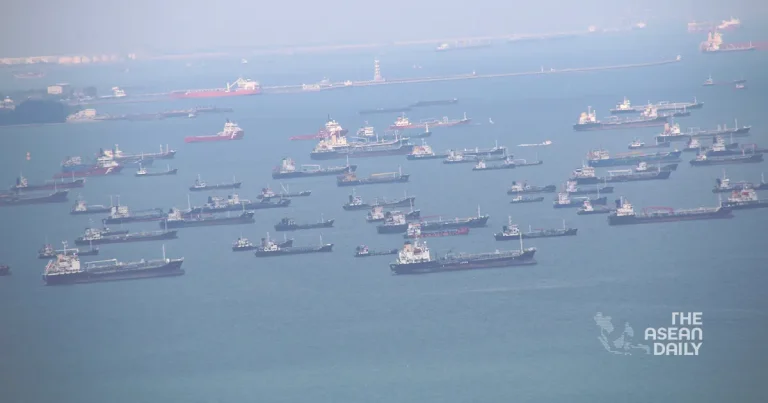9-7-2024 (SINGAPORE) The maritime industry is facing unprecedented challenges as container ship congestion, initially centred in Singapore, has now spread to neighbouring Malaysian ports, causing significant disruptions to global supply chains and delaying the movement of consumer goods across Asia.
The congestion, which began in Singapore, one of Asia’s busiest ports, has now extended to Port Klang on Malaysia’s western coast. Recent reports indicate that approximately 20 container vessels are currently anchored off Port Klang, creating a rare sight of maritime gridlock in the area.
This bottleneck is primarily attributed to the ongoing geopolitical tensions in the Middle East. Houthi rebel attacks in the Red Sea have forced many ships to avoid the Suez Canal route, opting instead for the longer journey around the southern tip of Africa. This rerouting has had a knock-on effect, preventing vessels from refuelling or unloading cargo at their usual Middle Eastern stops.
Captain Lim Chee Kiat, a veteran maritime consultant, explained the situation: “The redirection of shipping routes is causing a ripple effect across Asian ports. Vessels are arriving out of their usual schedules, creating unprecedented congestion.”
Port Klang, situated near Kuala Lumpur, is a crucial terminal in the region. However, the current queue of ships waiting to dock is an unusual occurrence. Satellite imagery reveals numerous vessels anchored offshore, while the port’s berths are operating at full capacity.
The congestion is not limited to Port Klang. Singapore’s port and Malaysia’s Tanjong Pelepas, located just across the border from the city-state, are also experiencing similar pressures. While their berthing slots appear to be fully occupied, there are comparatively fewer ships waiting offshore.
These ports, all situated along the strategic Straits of Malacca, form a vital waterway connecting Europe and the Middle East to East Asia. The current congestion is severely impacting this crucial maritime artery.
Industry analysts predict that this shipping logjam could persist through August, with far-reaching consequences for global trade. Sarah Thompson, a logistics expert at MarineInsight, commented: “We’re seeing a domino effect in action. The congestion is not just delaying shipments; it’s also driving up container vessel rates due to the rerouting and delays.”
The situation is causing concern among retailers and manufacturers who rely on timely shipments. John Baker, CEO of a major electronics retailer, expressed his worries: “These delays are impacting our entire supply chain. We’re having to rethink our inventory management and may face stock shortages if the situation persists.”
Local authorities and port operators are working round the clock to alleviate the congestion. A spokesperson for Port Klang stated: “We’re implementing measures to expedite the loading and unloading processes, including extended operating hours and streamlined customs procedures.”
The shipping industry is closely monitoring the situation, with many companies already adjusting their schedules and routes to mitigate the impact. However, the long-term effects on global trade remain to be seen.




